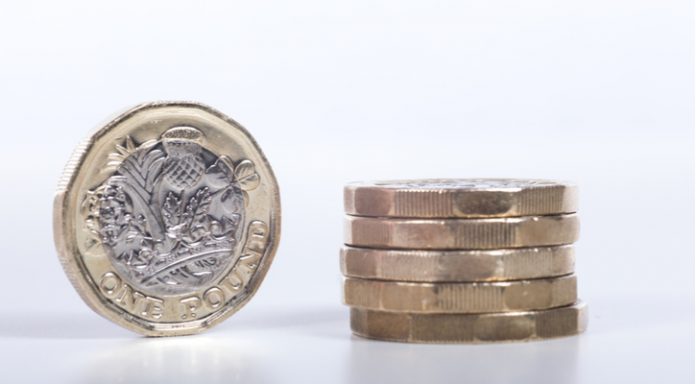The pound rose versus the euro on Thursday, for the first time in four sessions. The pound euro exchange rate increased 0.3% to a high of €1.1134.
| What do these figures mean? |
|---|
|
When measuring the value of a pair of currencies, one set equals 1 unit and the other shows the current equivalent. As the market moves, the amount will vary from minute to minute. For example, it could be written: 1 GBP = 1.13990 EUR Here, £1 is equivalent to approximately €1.14. This specifically measures the pound’s worth against the euro. If the euro amount increases in this pairing, it’s positive for the pound. Or, if you were looking at it the other way around: 1 EUR = 0.87271 GBP In this example, €1 is equivalent to approximately £0.87. This measures the euro’s worth versus the British pound. If the sterling number gets larger, it’s good news for the euro. |
After trading lower across the week versus the euro, the pound was finally able to move higher as pound investors tried to put Brexit fears behind them and concentrate on high impacting economic data today.
The pound has been under pressure across the week as fear of an no deal, hard Brexit intensified. Bank of England governor, Mark Carney has warned on the impact of a no deal Brexit. International Trade Secretary Liam Fox also warned that the chances of the UK crashing out of the European Union without a Brexit agreement were no more likely than a deal being agreed; a comment which unnerved pound traders. As investors reassess the possibility of a hard Brexit, the pound fell.
| Why is a “soft” Brexit better for sterling than a “hard” Brexit? |
|---|
| A soft Brexit implies anything less than UK’s complete withdrawal from the EU. For example, it could mean the UK retains some form of membership to the European Union single market in exchange for some free movement of people, i.e. immigration. This is considered more positive than a “hard” Brexit, which is a full severance from the EU. The reason “soft” is considered more pound-friendly is because the economic impact would be lower. If there is less negative impact on the economy, foreign investors will continue to invest in the UK. As investment requires local currency, this increased demand for the pound then boosts its value. |
This week ha been very quiet on the UK economic calendar, which has left investors with nothing but Brexit to focus on. Fortunately, today pound investors will have some high impacting data to distract them from Brexit headlines. Analysts are expecting UK GDP to hit 1.3% in the second quarter year on year, up from 1.2%. Quarter on quarter analysts are forecasting an increase of 0.4%, up from 0.2%. Should the data show that the UK economy is growing at a faster pace than the sluggishly slow first quarter, the pound could rally.
| Why does strong economic data boost a country’s currency? |
|---|
| Solid economic indicators point to a strong economy. Strong economies have strong currencies because institutions look to invest in countries where growth prospects are high. These institutions require local currency to invest in the country, thus increasing demand and pushing up the money’s worth. So, when a country or region has good economic news, the value of the currency tends to rise. |
Cautious ECB Bulletin Pulled Euro Lower
A cautious outlook from the European Central Bank in their Economic Bulletin, in the previous session, sent the euro lower. The ECB highlighted global uncertainties such as the threat of protectionism and heightened financial market volatility as prominent risk that need monitoring. Although, the ECB did go on to say that the risks facing the Euro area growth outlook could still be assessed as balanced.
Today there is no influential eurozone data so movement in the euro could be dependent on the dollar. The euro tends to trade inversely to the dollar so when there is no data or headlines to move the euro, the dollar generally takes control.
This publication is provided for general information purposes only and is not intended to cover every aspect of the topics with which it deals. It is not intended to amount to advice on which you should rely. You must obtain professional or specialist advice before taking, or refraining from, any action on the basis of the content in this publication. The information in this publication does not constitute legal, tax or other professional advice from TransferWise Inc., Currency Live or its affiliates. Prior results do not guarantee a similar outcome. We make no representations, warranties or guarantees, whether express or implied, that the content in the publication is accurate, complete or up to date. Consult our risk warning page for more details.
This article was initially published on TransferWise.com from the same author. The content at Currency Live is the sole opinion of the authors and in no way reflects the views of TransferWise Inc.





